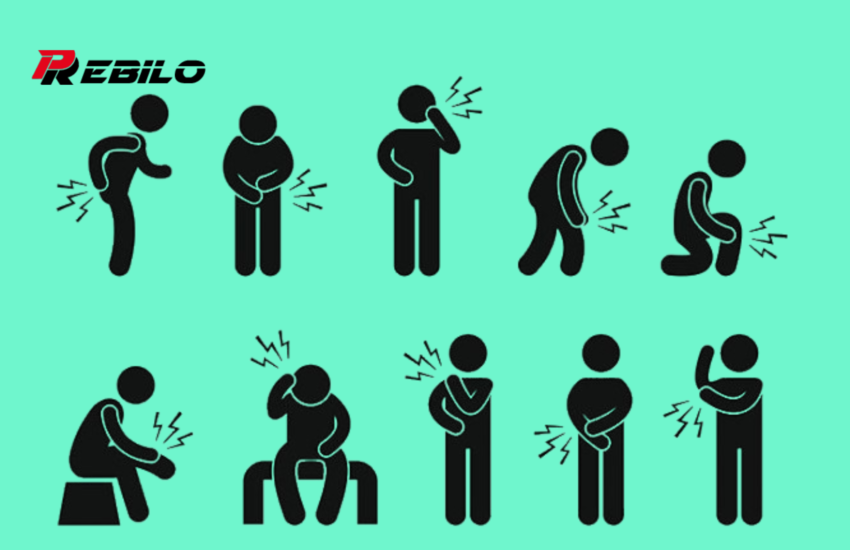The most important signs that you have a magnesium deficiency and what to do about it
Magnesium is a ubiquitous element, ranking among the ten most abundant minerals on Earth. It also occupies a prominent place among the five most abundant minerals in the human body, with approximately half of them found in our bones. Despite its prevalence, millions of people suffer from magnesium deficiency without realizing it due to the limited availability of accurate diagnostic tests. However, there are telltale signs that can indicate a need for more magnesium in your system.
The importance of magnesium
Magnesium plays a critical role in over 300 different biochemical reactions within the body. It is especially abundant in the soft tissues of vital organs such as the brain and heart, which depend on this mineral to perform their functions optimally. Magnesium helps regulate body temperature and facilitates detoxification. The list of health benefits associated with magnesium intake is extensive, but some noteworthy advantages include:
Regulating blood pressure
Osteoporosis prevention
Fighting heart disease
Diabetes management
Relieve depression and anxiety
Treating sleep disorders
Bone fortification
Support protein synthesis
Help with weight loss
Promote healthy blood circulation
Help treat asthma
Reducing the risk of stroke
Interaction between magnesium, vitamin D, and calcium
While calcium is often celebrated for its role in bone health and immunity, without an adequate supply of magnesium, excess calcium can pose risks. Magnesium helps remove excess calcium from cells, preventing it from accumulating as toxins instead of being properly absorbed into the bones.
Furthermore, magnesium absorption depends on the presence of vitamin D. Inadequate vitamin D levels can hinder magnesium absorption during digestion. Therefore, balancing these three essential nutrients is crucial to maintaining overall health.
Identify magnesium deficiency
Identifying magnesium deficiency is not particularly challenging, since a large portion of the population is estimated to be deficient. Research indicates that between 68% and 80% of Americans do not meet their magnesium requirements. Traditional blood tests for magnesium often yield limited results, as most of the magnesium in the body is stored in bones and cells, with only a small portion of magnesium in the bloodstream. Therefore, symptoms are more reliable indicators of a possible deficiency.
Common signs of magnesium deficiency include lack of concentration, low energy levels, fatigue, difficulty concentrating, irritability, and increased stress and anxiety. Additional symptoms may include sensitivity to noise, sleep disturbances, infertility, frequent headaches, digestive problems, depression, temperature fluctuations, and muscle tightness. In severe cases, a deficiency can lead to loss of appetite, feeling sick, irregular heartbeat, seizures, and severe mood swings.
Causes of magnesium deficiency
There are several factors that contribute to magnesium deficiency:
Industrial agriculture depletes soil of nutrients, reducing dietary magnesium intake.
Refined and processed foods lose their minerals, vitamins and fiber content.
Modern water filtration processes aimed at removing contaminants such as lead strip the water of beneficial minerals, including calcium and magnesium.
Commonly used home water filters reduce the mineral content in drinking water.
Health conditions associated with magnesium deficiency
Due to its essential role in various bodily processes, magnesium deficiency can contribute to a range of health problems. Inadequate magnesium levels may increase your risk of conditions such as osteoporosis, heart disease, heart attacks, kidney stones, PMS, high blood pressure, menstrual cramps, insomnia, and even cancer. In addition, muscle spasms, including eyelid twitching, can result from magnesium deficiency.
Maintain optimal magnesium levels
To maintain healthy levels of magnesium, the first step is to identify the root of the problem, which for many people often lies in dietary choices. Modern agricultural practices have depleted magnesium in crops and affected magnesium-rich sources in foods. Drinking water, once a source of magnesium, has become less reliable due to the addition of fluoride, which hinders the absorption of the mineral.
Habits such as daily caffeine consumption (especially combined with excessive sugar intake), overeating processed foods, and alcohol consumption can also deplete magnesium levels. Some medications such as birth control pills and diuretics can have a similar effect. Consult your healthcare provider if you are taking medication and have concerns about your magnesium levels.
Take action
To boost your magnesium intake, consider incorporating magnesium-rich foods into your diet. Vegetables, nuts, fruits, and whole grains are excellent sources. When planning your next shopping trip, consider adding the following items to your list:
Dark leafy greens (such as spinach, kale


